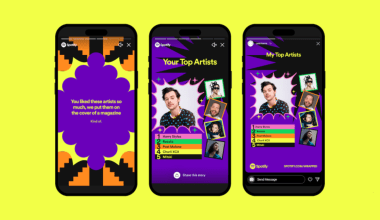Hey there, musician! Are you ready to share your incredible songs with the world? Creating music is magical, but if your songs aren’t heard, they stay hidden treasures. That’s where music pitching comes in.
Music pitching is all about presenting your songs to the right people, like playlist curators, labels, or even your fans. It’s like showing off your best work and saying, “Hey, listen to this!” Whether you’re an independent artist or part of a label, learning to pitch your music is a must if you want your tunes to shine.
In this guide, we’ll break down the process into easy steps and share tips to help you pitch your music confidently. By the end, you’ll have the tools to get your songs heard everywhere. Let’s dive in!
What Is Music Pitching?
Music pitching means sending your songs to curators, playlist managers, radio stations, or labels, hoping they’ll feature them. Think of it as a job interview for your music! You’re giving someone a chance to understand why your song deserves a spot on their playlist or platform.
But pitching isn’t just about the song. It’s about telling your story, building connections, and showing your potential. When done right, music pitching opens doors to exciting opportunities like playlist placements, radio play, and industry recognition.
Why Is Pitching Music Important?
Here’s why you should care about pitching your music:
- Reach More People: Playlist features or radio spots can bring your music to thousands (or even millions) of listeners.
- Build Connections: Pitching helps you connect with curators, bloggers, and industry experts who can support your career.
- Earn More Money: With more streams and exposure, your royalties and income can grow.
Imagine this: Your track lands on a popular Spotify playlist. Suddenly, your streams jump from a few hundred to thousands daily. That’s the magic of a successful pitch!
Getting Ready to Pitch Your Music
Before you start pitching, make sure your music is ready. Here’s a simple checklist:
1. Make Your Music Sound Great
Your music should sound polished and professional. Using tools like AI Mastering (available on platforms like Deliver My Tune) can enhance your tracks and make them radio-ready.
2. Create Stunning Cover Art
People often judge a song by its cover. Design high-quality, eye-catching artwork that matches the vibe of your song. Avoid blurry or overly crowded designs.
3. Fill Out the Metadata
Metadata is the information about your song (like its title, genre, and release date). It helps curators and platforms identify and categorize your music. Don’t skip this step!
4. Write a Story About Your Song
Every song has a story. What inspired you? What emotions does it capture? Sharing this story in your pitch makes it personal and relatable.
How to Pitch Music Effectively
1. Start with a Personalised Introduction
Begin your pitch by introducing yourself. Mention your name, a brief summary of your achievements, and why you’re reaching out. For example:
This friendly approach shows that you’ve taken the time to tailor your message, making a great first impression.
2. Highlight the Key Details
Make sure to include:
- Your song’s name and release date
- Its genre and mood (e.g., upbeat, chill, or romantic)
- Links to your song on streaming platforms
- Your artist portfolio or social media profiles
3. Keep It Short and Sweet
Curators are busy and often receive hundreds of pitches. Get straight to the point and keep your email or message brief but engaging.
Where to Pitch Your Music
1. Playlist Curators
Playlists are a huge way for people to discover music today. Platforms like Spotify and Apple Music allow you to submit your tracks for editorial playlist consideration. You can also contact independent playlist curators on Instagram or websites.
2. Radio Stations
Many local and online radio stations are open to featuring fresh, independent music. Research stations that match your genre and pitch to their producers.
3. Music Blogs and Magazines
Music bloggers love featuring new artists. Write a short pitch introducing your music and why it would interest their readers.
Tips for Successful Pitching
- Do Your Homework: Research the curator or blog you’re pitching to. Make sure your music aligns with their style.
- Be Polite and Professional: Always thank the person for their time, whether they accept your song or not.
- Follow Up Gently: If you don’t hear back within a week or two, send a friendly reminder.
Social media platforms like Instagram, Twitter, and TikTok are amazing for pitching music. Here’s how to make the most of them:
- Engage with Curators: Like, comment, and share their posts before pitching to build a genuine connection.
- Use Trending Hashtags: Tags like #NewMusic, #IndieArtist, and #PlaylistSubmission can help your music get noticed.
- Post Snippets: Share short clips of your songs to grab attention and drive traffic to your profile.
How Deliver My Tune Can Help
Deliver My Tune is a platform designed to simplify music distribution and promotion for independent artists. Here’s what they offer:
- Wide Distribution: Get your music on over 100 platforms like Spotify, Apple Music, and Amazon.
- Professional Tools: Use AI Mastering to enhance your sound and Editorial Pitch features to reach top curators.
- Artist Portfolios: Create a professional portfolio to showcase your music and achievements.
Pro Tip: Start using tools like Deliver My Tune early in your journey. They’re like your backstage crew, making sure everything runs smoothly.
Overcoming Common Pitching Challenges
If you feel nervous or unsure about pitching your music, remember these tips:
- Practice Makes Perfect: The more pitches you send, the better you’ll get at it.
- Rejection is Normal: Don’t get discouraged if your song isn’t accepted. Use feedback to improve and try again.
- Keep Learning: Stay updated on industry trends and tools to make your pitches more effective.
Pitching your music may seem daunting at first, but with practice and the right approach, you’ll soon find it enjoyable. Remember, every pitch is a step closer to getting your music heard and loved by the world.
So go ahead, pitch your music, and let the world hear your voice. You’ve got this!
Related Articles:
For further reading, explore these related articles:
- What is an ISRC Code and Why Every Musician Needs One
- The Complete Guide to Apple Music Benefits: Why It’s Great for Artists and Listeners
For additional resources on music marketing and distribution, visit Deliver My Tune.






